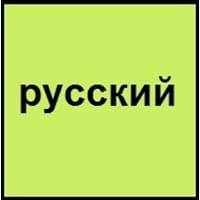Countries
Barbados, Belize, Botswana, Cameroon, Canada, Dominica, Fiji, Ghana, India, Ireland, Jamaica, Kenya, Malta, Mauritius, Micronesia, Nigeria, Pakistan, Philippines, Rwanda, Saint Kitts and Nevis, Samoa, Sierra Leone, Singapore, Somaliland, South Africa, South Sudan, Sudan, Tanzania, Trinidad and Tobago, Uganda, United Kingdom, Zambia, Zimbabwe
Belarus, Kazakhstan, Kyrgyzstan, Tajikistan
National Language
Anguilla, Antigua and Barbuda, Bahamas, Barbados, Belize, Bermuda, Cayman Islands, Gibraltar, Grenada, Guam, Guyana, Jersey, Montserrat, Nauru, Singapore, Trinidad and Tobago, United Kingdom, United States of America
Russia
Second Language
India, Nigeria, Pakistan, Singapore
Afganistan
Speaking Continents
Africa, Asia, Australia, Europe, North America, Oceania, South America
Asia, Europe
Minority Language
South Africa
Armenia, Azerbaijan, Bulgaria, Estonia, Finland, Georgia, Germany, Greece, Israel, Jordan, Latvia, Lithuania, Mongolia, Poland, Serbia, Tajikistan, Turkey, Turkmenistan, Ukraine, Uzbekistan
Regulated By
Not Available
Russian Academy, Russian Language Institute of the Russian Academy of Sciences
Interesting Facts
- Most of the English words begin with the letter S than any other letter.
- English is third most commonly spoken language in the world.
- In Russian language, the words are not pronounced as they are written.
- In Russian language, there are only 200,000 words out of which only few words are used and due to this many words have more than one meaning.
Similar To
Not Available
Ukrainian and Belarusian Languages
Derived From
Latin
Proto-Slavic Vocabulary
Alphabets in
English-Alphabets.jpg#200
Russian-Alphabets.jpg#200
Writing Direction
Left-To-Right, Horizontal
Left-To-Right, Horizontal
Hello
Hello
здравствуйте(zdravstvuyte)
Thank You
Thank you
спасибо(spasibo)
How Are You?
How are you?
Как дела? (Kak dela?)
Good Night
Good Night
Спокойной Ночи(Spokoynoy Nochi)
Good Evening
Good Evening
Добрый Вечер(Dobryy Vecher)
Good Afternoon
Good Afternoon
Добрый День(Dobryy Den')
Good Morning
Good Morning
Доброе Утро(Dobroye Utro)
Please
Please
пожалуйста(pozhaluysta)
Sorry
Sorry
Извините(Izvinite)
Bye
Bye
до свидания(do svidaniya)
I Love You
I love you
Я тебя люблю(YA tebya lyublyu)
Excuse Me
Excuse Me
извините(izvinite)
Dialect 1
American English
Doukhobor Russian
Where They Speak
United States of America
Alberta, British Columbia, Canada, Saskatchewan
Dialect 2
Hiberno-English
Olonets
Where They Speak
Republic of Ireland, United Kingdom
Olonets
How Many People Speak
Not Available
Dialect 3
Welsh English
Novgorod
Where They Speak
United Kingdom
Novgorod
How Many People Speak
Not Available
Native Name
English
Русский
Alternative Names
Not Available
Russki
French Name
anglais
russe
German Name
Englisch
Russisch
Pronunciation
/ˈɪŋɡlɪʃ/
[ˈruskʲɪj jɪˈzɨk]
Ethnicity
Not Available
Russians
Origin
5th Century AD
1000 AD
Language Family
Indo-European Family
Indo-European Family, Slavic Family
Subgroup
Not Available
Slavic
Branch
Not Available
Eastern
Early Forms
Old English, Middle English, Early Modern English and English
Old East Slavic
Standard Forms
Standard English
Standard Russian
Signed Forms
Signed English
Signed Russian
Scope
Individual
Individual
ISO 639 6
engs
Not Available
Glottocode
stan1293
russ1263
Linguasphere
52-ABA
53-AAA-ea
Language Type
Living
Living
Language Linguistic Typology
Subject-Verb-Object
Subject-Verb-Object
Language Morphological Typology
Analytic, Fusional, Isolating, Synthetic
Fusional, Synthetic
English and Russian Greetings
People around the world use different languages to interact with each other. Even if we cannot communicate fluently in any language, it will always be beneficial to know about some of the common greetings or phrases from that language. This is where English and Russian greetings helps you to understand basic phrases in English and Russian language. English word for "Hello" is Hello or Russian word for "Thank You" is спасибо(spasibo). Find more of such common English Greetings and Russian Greetings. These greetings will help you to be more confident when conversing with natives that speak these languages.
English vs Russian Difficulty
The English vs Russian difficulty level basically depends on the number of English Alphabets and Russian Alphabets. Also the number of vowels and consonants in the language plays an important role in deciding the difficulty level of that language. The important points to be considered when we compare English and Russian are the origin, speaking countries, language family, different greetings, speaking population of these languages. Want to know in English and Russian, which language is harder to learn? Time required to learn English is 6 weeks while to learn Russian time required is 44 weeks.





